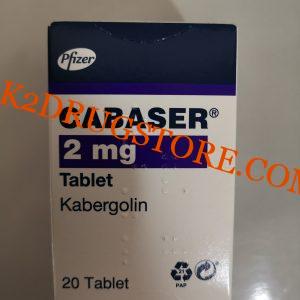What is insomnia?
According to the American Academy of Sleep Medicine, insomnia is “persistent difficulty with sleep initiation, duration, consolidation or quality.” Basically, you might suffer from insomnia if you have trouble falling asleep or staying asleep. But it doesn’t stop there. You might have insomnia if you fall asleep easily but find that you wake up feeling tired or groggy, or if you experience frequent interruptions in your sleep without being aware of it. Pills and Tablets
Everyone experiences a sleepless night from time to time. In fact, that’s totally normal! However, if you’re frequently (more than three or four nights per week) not getting the amount of natural sleep your body needs, it can affect your day-to-day life. People who struggle with insomnia often experience a range of daytime symptoms like low energy, memory trouble, irritability, and difficulty concentrating. Significant problems like depression, anxiety, and substance abuse can also become issues when you’re not getting the rest you need.
What causes insomnia?
There is a vast array of causes for insomnia, which is why patients who suffer from it can sometimes feel frustrated or defeated. The key to constructively dealing with insomnia is to first identify the unique driving factors and then create a plan to tackle them, which is what our Guided Sleep Discovery™ program aims to do. Here are some common causes for insomnia:
- Substances – Even if consumed during the day, caffeine, alcohol, and nicotine can prevent a restful night’s sleep.
- Mental health concerns – Are you dealing with feelings of depression, anxiety, or stress? Often, mental health matters play a large part in sleeping soundly.
- Medical issues – Physical illness, pain, sleep apnea, neurological problems, and sleep disorders are just a few issues that can cause insomnia.
Many times, patients might be experiencing one or more of the things listed above, which can exacerbate the problem. But be encouraged! We believe every sleep problem has a solution, and we aim to help you find the cure for yours.
What are some remedies for insomnia?
Medication
The most common treatment for insomnia is medication. While a prescription might be effective in helping you sleep, it acts as a “band-aid” by treating the symptom without treating the cause of the problem. Sleep medications can also be addictive and have unwanted side effects like prolonged drowsiness, headaches, dizziness, and gastrointestinal problems. While sleep medications can be helpful for the short term, most medical professionals agree that they’re not ideal as a long-term solution.
Cognitive Behavioral Therapy for Insomnia (CBT-I)
Recognized by the American Academy of Sleep Medicine and the National Institute of Health as an effective way to combat insomnia, CBT-I focuses on two main components of sleep training. The cognitive portion of therapy helps you to recognize beliefs that may be hindering your sleep. The behavioral part aids in developing healthy sleep habits that combat the negative behaviors that are keeping you from sleeping. CBT-I techniques can include stimulus control therapy, sleep restriction, sleep hygiene, relaxation training, biofeedback, and more.
According to the Mayo Clinic, “Cognitive behavioral therapy for insomnia can benefit nearly anyone with sleep problems. CBT-I can help people who have primary insomnia as well as people with physical problems, such as chronic pain, or mental health disorders, such as depression and anxiety. What’s more, the effects seem to last. And there is no evidence that CBT-I has negative side effects.” At The Insomnia Clinic, we believe that CBT-I therapy is a safe and effective way to naturally cure sleep issues, no matter how severe.
Pills and Tablets
Pills and Tablets
Pills and Tablets
Pills and Tablets
Pills and Tablets












